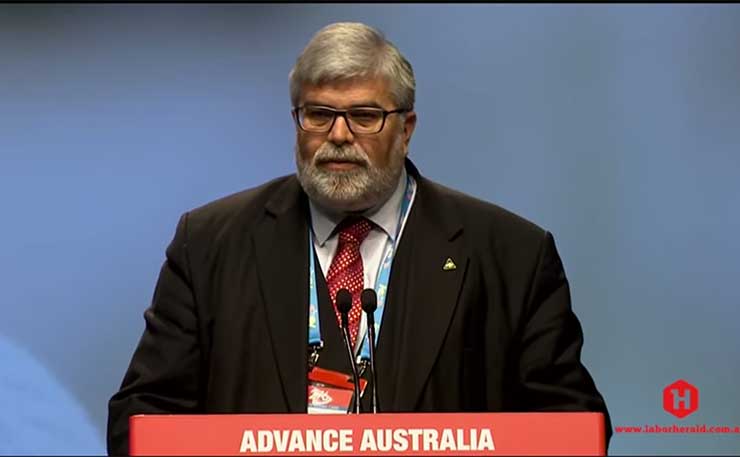If we’re to combat the rise of racism, it begins with understanding the causes of discontent and poverty, and embracing innovation, writes ALP Senator Kim Carr.
Sometimes the significance of political events eludes many whose daily duty it is to report them, however accurate their accounts may be in detail. We are living at such a time.
The federal election resulted in the discomfiting of the Turnbull Government as its majority shrank to the barest of margins, and in the return of One Nation to the electoral limelight.
The first of these things has mostly been analysed in terms of the diminished personal authority of the Prime Minister, and the second as an unwelcome accident of the double dissolution – the revival of a circus that is both nasty and diverting but probably won’t be around for long.
Neither of these explanations is wrong in itself. But each fails to grasp what connects these developments in Australian politics to each other, and to currents in the wider world.
The second coming of Pauline Hanson should not have been surprising, nor should the fact that a Prime Minister who spruiked economic disruption as exciting only managed to spread dismay.

In Australia, as in other democracies with which we typically compare ourselves, this is not a time of excitement about a rosy and assured future. It is a time of anxiety.
The anxiety reflects deepening inequality and job insecurity, and it is greatest among people who experience the precariousness of the job market most intensely – those who lack the skills or opportunities to participate in the new economy being shaped by innovative technologies.
In developed economies – for the first time since the industrial revolution – technological changes that increase productivity are not creating more jobs than they destroy.
This change has been taking place at the same time as mainstream political parties in most democracies have, in varying degrees, adhered to a neoliberal economic agenda.
The neoliberal prescription for continued growth essentially amounts to letting the market rip, with no role for government beyond maintaining minimal order in commercial transactions.
Political, business and media elites have clung to this prescription since the end of the long post-World War II boom in the 1970s, but the global prosperity predicted by neoliberal prophets such as Friedrich Hayek and Milton Friedman has not arrived.
The failure of neoliberalism has been especially evident since the global financial crisis, which disproportionately affected, and continues to affect, those who were already vulnerable because of technological change.
Yet the elites’ unquestioning faith in markets has not diminished. In the federal election campaign, the Turnbull Government blithely assured voters that a tax cut for the biggest corporations would suffice to deliver “jobs and growth”.
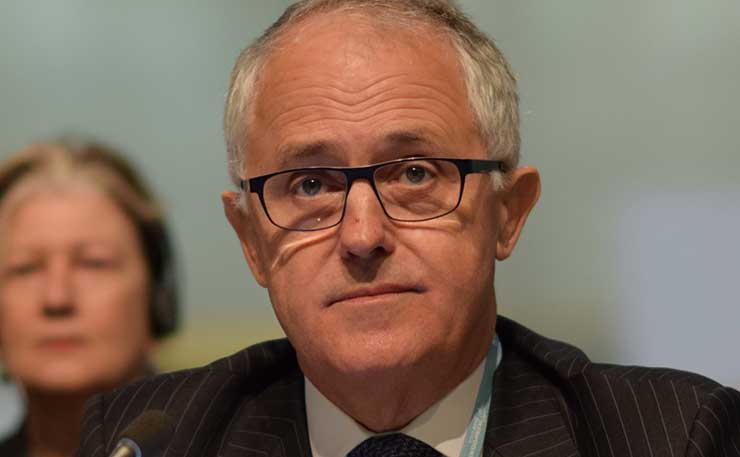
The shrivelling of the Government’s majority suggests that increasing numbers of voters refused to accept this assurance.
Their scepticism is justified. There is no evidence, in Australia or elsewhere, that corporate revenues saved from tax cuts will necessarily be reinvested in productive activity generating jobs.
The dismal record of such tax cuts shows that the resulting savings are at least as likely, and often more likely, to end up as bonuses for executives and dividends for shareholders.
But the economic reality experienced by ordinary people in post-mining boom, post-GFC Australia is very different to that experienced by corporate executives anticipating their next bonus.
As the latest quarterly figures released by the Australian Bureau of Statistics confirm, the rate of wages growth – 2.1 per cent – is the lowest on record.
It is not the only statistic that testifies to increasing economic insecurity for many people. Income inequality in Australia is at its highest level in 70 years, and household debt is now 125 per cent of GDP – one of the highest levels in the developed world.
And, although the unemployment rate fluctuates, such growth in employment as is occurring actually points to a hollowing-out of the job market because most of it is part-time.
According to the University of Newcastle’s Centre of Full Employment and Equity, more than 86 per cent of total net jobs created in Australia during the past 12 months are part-time.
The consequences of being dependent on part-time employment are obvious enough: people in this position are constantly in search of supplementary work because they need several jobs to support a family and pay a mortgage. They find it harder to get loans, and have less time to spend with their families because they are working irregular hours or travelling between jobs.

Yet that is increasingly the experience of many Australians, especially if they are not participants in the new economy or have only a tenuous connection to it. And they will be keenly aware of how their circumstances differ from those who are its beneficiaries.
The hollowing out of the job market, and the gulf between the old and new economies, are the cause of rising inequality in developed economies, which in turn is unmasking the promises of neoliberalism. The anxieties created by these economic changes, above all by job insecurity, have produced a backlash throughout the West.
The toxic mix of racism, xenophobia and populism that we know as One Nation has affinities with Donald Trump’s capture of the US Republican Party, with the Brexit vote in the UK, and with the growth of anti-immigrant political parties such as the Front National in France and the Alternative fur Deutschland in Germany.
These are not, of course, identical in every respect. Like One Nation, they all reflect local antagonisms that gave rise to them. But there is also a common thread. They are expressions of outsider politics – of anger directed at political elites.
Political establishments in Australia and elsewhere have been shaken to the core by this backlash, but have found no response to it other than to decry the revival of “protectionism”, a term used to dismiss any questioning of neoliberal assumptions.
Because they do not wish the neoliberal orthodoxy to be undermined, they refuse to acknowledge that the backlash is a complex phenomenon, both a danger and an opportunity.
It is a danger, because vulnerable people can easily become targets for fringe movements intent on presenting themselves as alternatives to the mistrusted elites.
These fringe movements try to incite racism and xenophobia, blaming minorities for the sense of alienation and powerlessness that so many people now experience.
That has been the tactic of One Nation, and of Donald Trump in his attacks on Muslims and Mexicans. In the UK, pro-Brexit campaigners in the UK seem to have relied on whipping up resentment of immigrants as well as on voter suspicions of a remote bureaucracy in Brussels.
It is not the first time that populist movements of the far right have sought to exploit economic disadvantage and insecurity in this way.
This history of Europe in the 1930s is a stark warning of what may happen if other political parties fail to recognise, and to respond effectively, to the discontents that give these populist movements opportunities to gain political influence.
But we should also recognise that the backlash against elites peddling neoliberal doctrines also presents an opportunity – an opportunity to revive genuinely social-democratic politics as an antidote to the crisis that neoliberalism has generated.
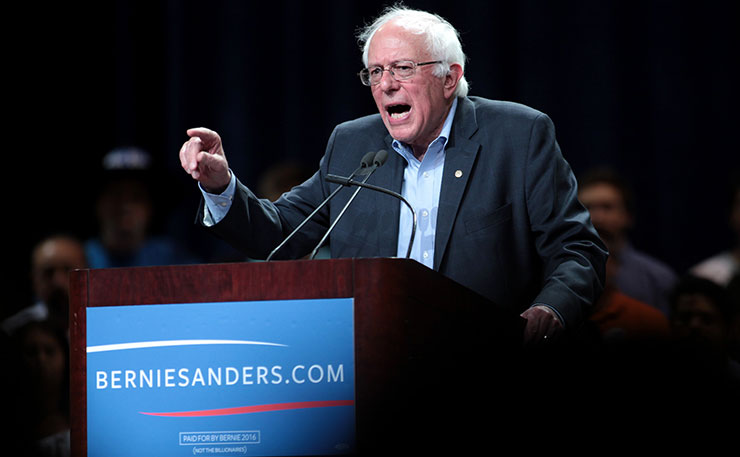
Bernie Sanders’ campaign for the Democratic presidential nomination in the US, although ultimately unsuccessful, is an example of the way in which the present discontents can be used to change the terms of political debate.
Sanders received far more support in the Democratic primaries than the party establishment expected, because he spoke frankly about the need for public investment – in education, in health, and in spending on infrastructure and other economic activity that generates jobs.
He called for the re-regulation of financial markets to prevent a recurrence of the banking collapses that triggered the financial crisis.
Like Trump, Sanders ran a campaign pitched at outsiders. Unlike Trump, he spoke a language of inclusion, not exclusion. He did not invite people to blame Mexican migrants for taking their jobs, and hint darkly that they might also be responsible for every crime imaginable. He did not portray Muslim migrants as potential terrorists.
Instead, Sanders kept the focus on the economic woes generated by the contraction of the public sector in the US, and the diminished sense of social cohesion that has accompanied it.
That should be the strategy of social democrats in Australia, too.
Of course racism and xenophobia must be firmly repudiated and resisted, wherever they occur. But politically defeating them requires more than appeals to tolerance and mutual respect.
To defeat those who exploit racism to gain political advantage, it is necessary to overcome economic disadvantage. It is necessary to end the alienation that neoliberalism creates but cannot heal.
In Australian politics, this is above all a challenge for the Labor Party – a challenge I believe Labor can meet by providing strong leadership and refusing to be deflected from the goal of building a social-democratic Australia.
That is what Bill Shorten did during the election campaign, and many media pundits marvelled that he chose not to pursue what they called a “small-target” strategy.
In the blinkered world of neoliberal commentary, that is not what centre-left parties aspiring to govern are supposed to do.
But the results vindicated Shorten as the party substantially increased its representation. Victory at the next election is within Labor’s grasp.
The Greens cannot meet the challenge of defeating neoliberalism, however left-leaning their rhetoric might be and however genuine the idealism of their supporters may be.
As successive election results testify, the Greens appeal overwhelmingly to affluent voters in the gentrified inner suburbs of the major cities. The voters who are targeted by One Nation, and by other far-right movements such as Reclaim Australia, are not to be found there.
The typical One Nation voter is to be found in the outer suburbs and in regional areas, among “old economy” workers and their families. This can literally be mapped: combining ABS data on areas of disadvantage and AEC data on ballot boxes that returned high One Nation votes in the federal election reveals a strong correlation between the two.
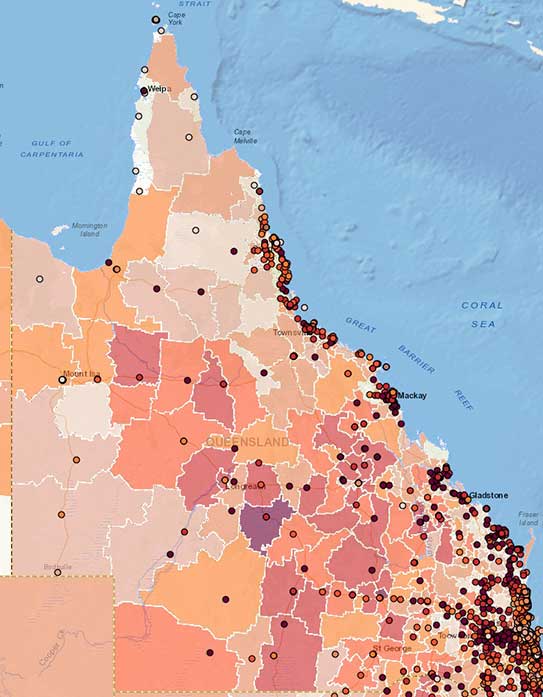
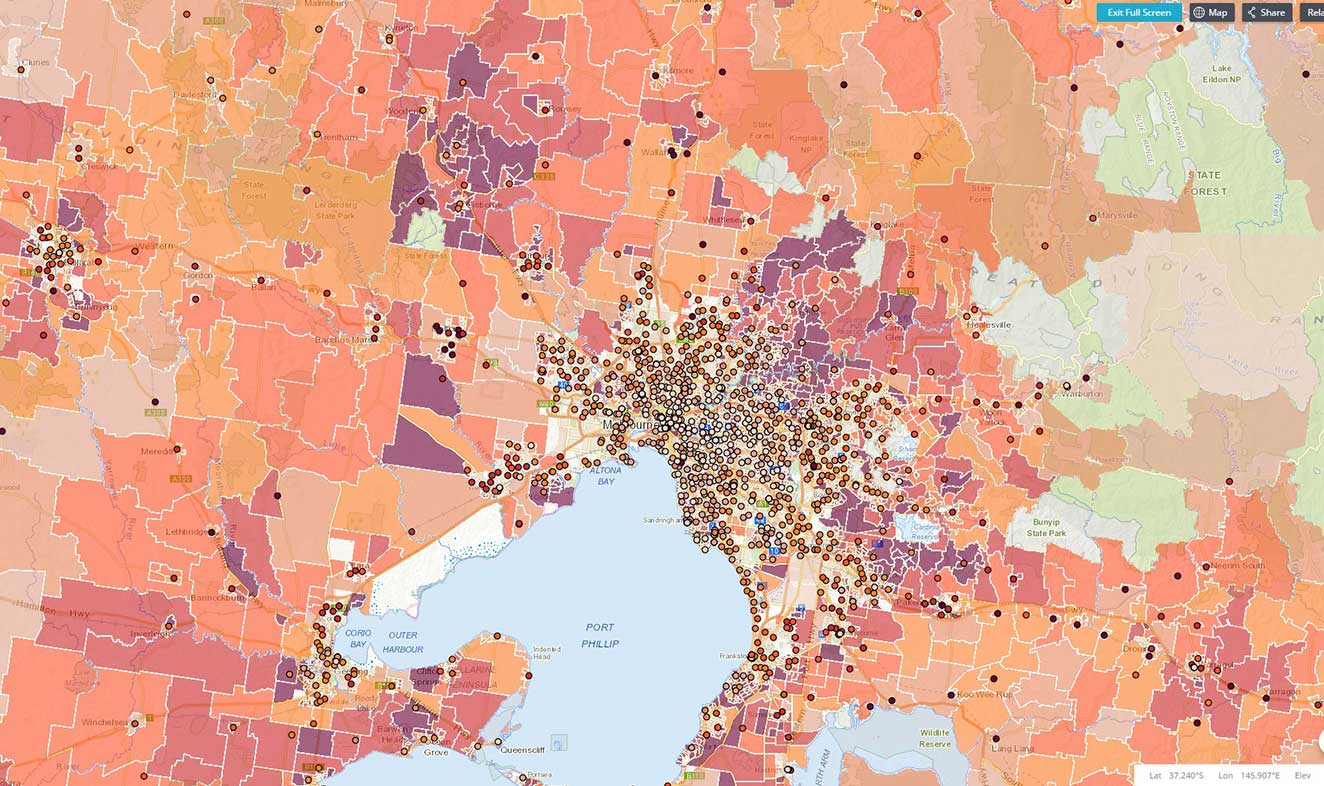
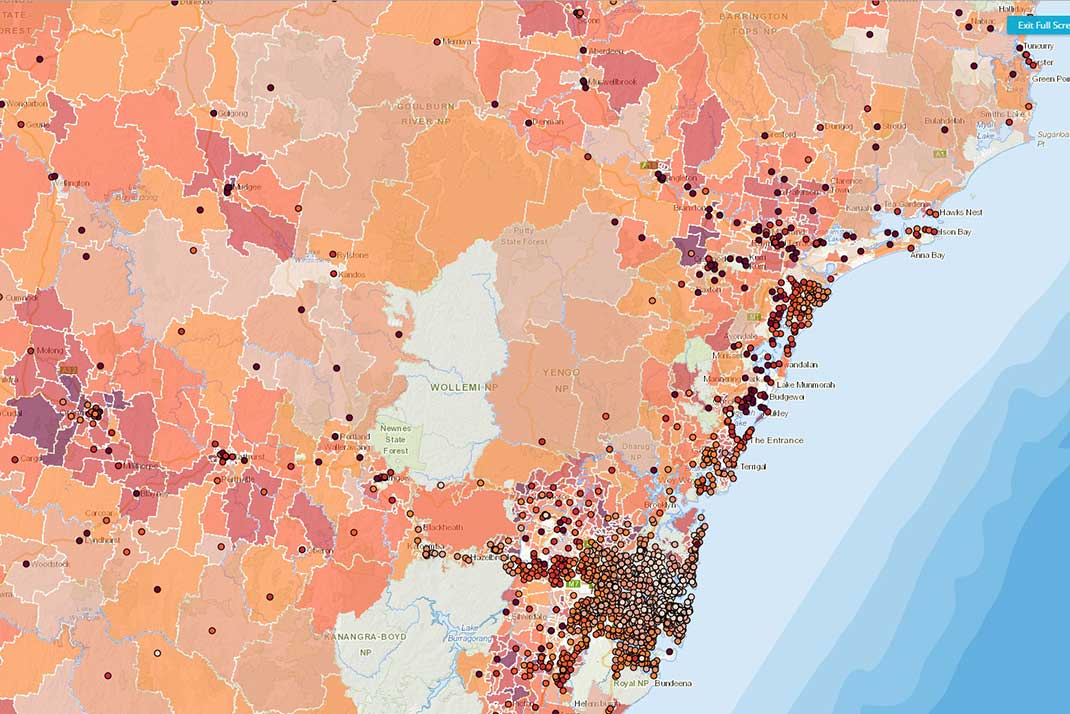
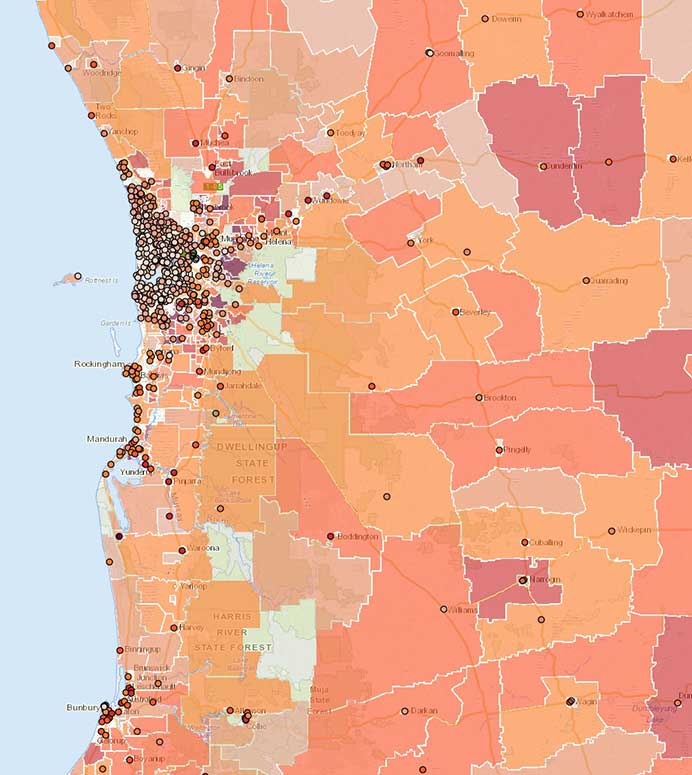
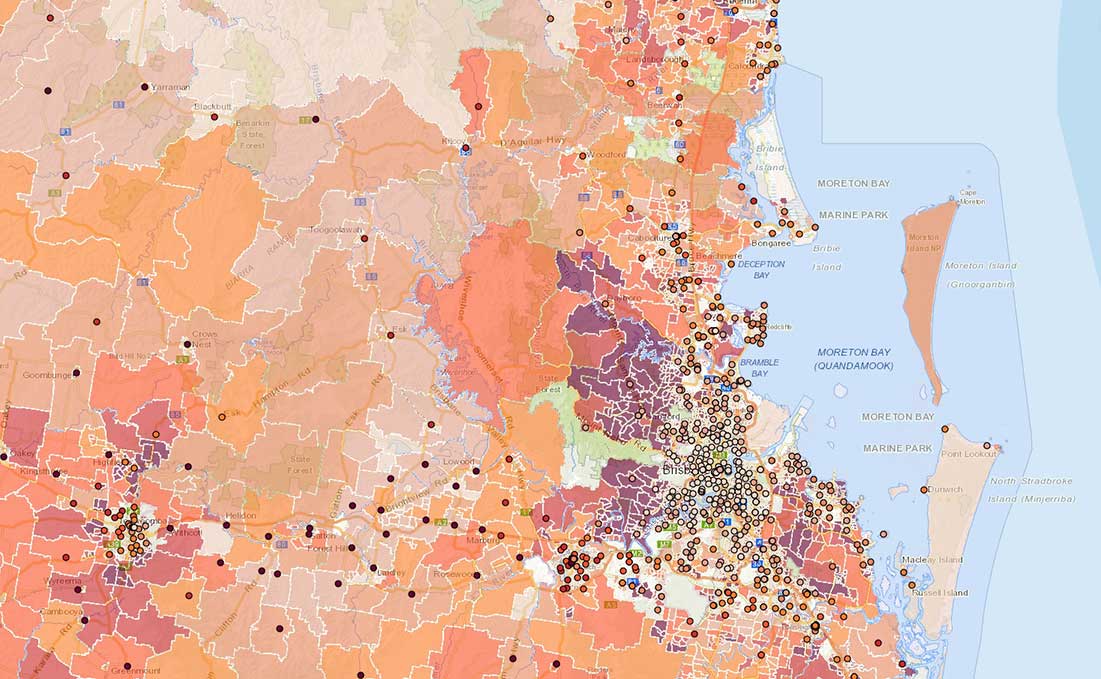
Only Labor, not the Greens, competes with One Nation for the allegiance of these voters. It is Labor’s social-democratic agenda that holds the key to defeating One Nation and any other racist movement that might arise to claim its mantle.
It is an agenda that upholds respect for human rights and cultural diversity, but it is not only that.
It is an agenda that defends universal health care and an adequate social safety net, to protect the vulnerable.
It is an agenda that includes the protection of wages and industrial rights as an essential part of defending the living standards of working-class Australians.
Most of all, it is an agenda that recognises what neoliberals have never understood: that the action of governments is essential in creating and maintaining prosperity.
Only an activist government will be able to close the divide between the old and new economies, so that new technologies do not only replace jobs, but generate new jobs.
That requires increasing the knowledge and skills base of the workforce, which is why social democrats insist on equality of opportunity at every level of the education system.
It is also why innovation has the central place in Labor’s industry policy.
For us, innovation is not an abstraction or a buzz word, and it does not refer narrowly to firms developing new technology.
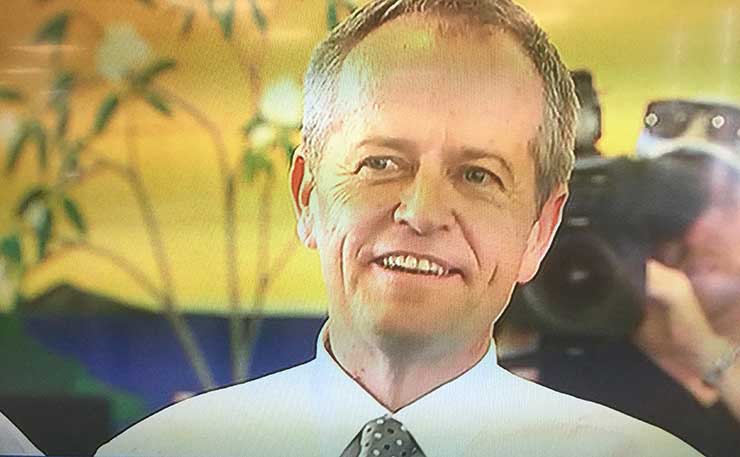
Above all, for Labor innovation is not an end in itself, as it seemed to be in the rhetoric of Malcolm Turnbull before the election.
Labor’s conception of innovation is very different. A national innovation agenda is about how we make a better Australia, and contribute to making a better world – a prosperous, fair and decent world in which everyone has the chance of a fulfilling life.
That means transforming the economy, industry by industry and firm by firm.
The level of inequality cannot be reduced without building an economy that does not shun the challenges of modernity – an innovative economy.
The illusion that it might be possible to build an innovation system without an active role for government can be held only by those who choose not to see how the most successful businesses of our time have been able to thrive.
The achievements of internet pioneers like Tim Berners Lee and Steve Jobs, for example, were only possible because of the research and communications infrastructure put in place by successive US administrations.
This activist role for government is not about “picking winners”, a seemingly ageless slogan that, like “protectionism” is trotted out by neoliberals to stop thinking.
It is about creating and entrenching conditions in which innovative businesses can thrive.
That includes supporting strategically vital industries such as steelmaking, and industries that are great repositories of technological capabilities, such as car making. We cannot abandon manufacturing, because it is only by enhancing our capabilities in advanced manufacturing that we will remain a high-waged economy.
An activist government will also negotiate trade agreements that do not confer unfair advantages on overseas competitors to Australian producers.
Social democrats understand that the distribution of wealth matters, because the less equal a society becomes the less it is able to act cohesively in the creation of new wealth.
The Chifley Institute’s Inclusive Prosperity Commission has estimated that if inequality is not reduced it will wipe 3 per cent off Australia’s GDP over the next 25 years.
The stark and growing inequality that has become a defining characteristic of the neoliberal ascendancy in the West is also undermining that ascendancy. As it does so, it may revive extremist movements that have threatened democracy in the past.
Only social democracy offers an alternative path: a path that will preserve freedom while protecting fairness and enhancing prosperity.
Donate To New Matilda
New Matilda is a small, independent media outlet. We survive through reader contributions, and never losing a lawsuit. If you got something from this article, giving something back helps us to continue speaking truth to power. Every little bit counts.

